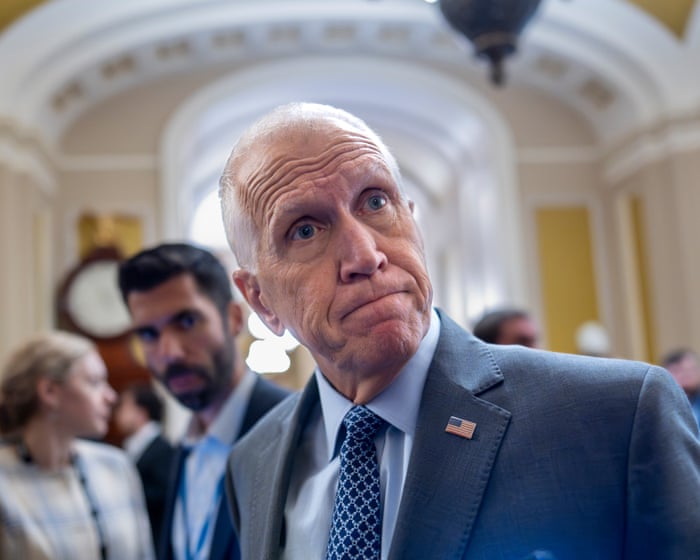Senior Republican lawmakers are criticizing their party leader, Donald Trump, for firing the head of U.S. labor market statistics after a report showed only 73,000 jobs were added in July—far below expectations.
The weak job numbers, along with revised data showing 258,000 fewer jobs in the previous two months and slowing economic growth and consumer spending, suggest the U.S. economy is weakening.
Trump defended his decision to dismiss Bureau of Labor Statistics (BLS) Commissioner Erika McEntarfer, claiming without evidence on social media that the numbers were “RIGGED to make Republicans and ME look bad” and insisting the economy is actually “BOOMING” under his leadership.
However, Trump’s move has drawn concern from members of his own party.
“If the president is firing the statistician because he doesn’t like accurate numbers, that’s a problem,” said Republican Senator Cynthia Lummis of Wyoming. “It’s not her fault if the data is correct but not what he wanted.”
Lummis added that if the numbers are unreliable, the public should be informed—but firing McEntarfer seemed “impetuous.”
North Carolina Senator Thom Tillis, also a Republican, said, “If she was fired just because someone didn’t like the numbers, they need to grow up.”
Kentucky Senator Rand Paul questioned whether firing McEntarfer would improve the data. “We need objective statistics,” he said. “When statisticians are fired, it makes it harder to trust that the numbers aren’t being politicized.”
Alaska Senator Lisa Murkowski, who supported Trump’s recent economic bill after securing benefits for her state, said the job numbers now seem untrustworthy—”and that’s the problem.”
William Beach, a former BLS commissioner appointed by Trump, called McEntarfer’s firing “totally groundless” and warned it sets a dangerous precedent, damaging the credibility of federal economic data.
A letter from “Friends of the Bureau of Labor Statistics,” co-signed by Beach, accused Trump of scapegoating McEntarfer for bad news and said the dismissal “undermines the credibility of economic statistics vital for businesses, families, and policymakers.”The official noted that the jobs reporting process is “decentralized by design to prevent interference,” emphasizing that U.S. economic data “are considered the global gold standard.”
The letter warned, “When leaders in other countries have manipulated economic figures, it has eroded public trust in all official statistics and government-backed research.”
Democrats have criticized Trump’s move as well. Senator Bernie Sanders of Vermont called it “the mark of an authoritarian,” arguing it would make Americans “less likely to trust government-released information.”
Paul Schroeder, head of the Council of Professional Associations on Federal Statistics, condemned the president’s accusation against McEntarfer as “deeply damaging and outrageous.”
He added, “This not only weakens confidence in federal economic data but also politicizes information that must remain impartial and reliable. The administration’s decision is a serious mistake with long-term consequences.”
—
How to share information securely
Public interest journalism depends on firsthand accounts from knowledgeable sources. If you have details to share on this topic, you can contact us confidentially through:
– Secure Messaging in the Guardian app:
Messages are end-to-end encrypted and hidden within normal app activity, making it impossible for outsiders to detect communication. Download the app (iOS/Android), open the menu, and select “Secure Messaging.”
– Other methods:
For alternatives like SecureDrop, encrypted messaging, email, phone, or mail—including their pros and cons—visit theguardian.com/tips.
Illustration: Guardian Design / Rich Cousins
[Feedback prompt removed for conciseness]



